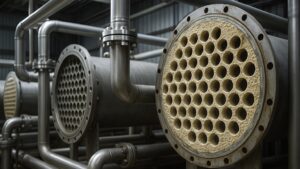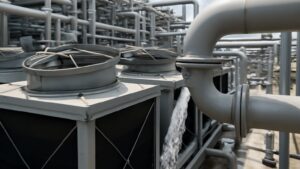The European Union has set ambitious targets to reduce greenhouse gas emissions, with the goal of achieving net-zero emissions by 2050. As part of these efforts, the European Commission has proposed a 90% reduction in emissions from heavy-duty trucks by 2050. This proposal would have a significant impact on businesses in Europe that rely on heavy-duty trucks to transport goods and materials.
Clean fuels
Firstly, businesses that operate their own fleet of heavy-duty trucks would need to invest in new technologies to reduce their emissions. This could include transitioning to electric or hydrogen-powered trucks, requiring significant infrastructure investment such as charging or refueling stations. While the upfront costs may be high, there would be long-term savings in fuel costs, and the environmental benefits could help businesses to meet the expectations of increasingly eco-conscious customers.
Supply chain sustainability
Secondly, businesses that rely on logistics providers to transport their goods would also be affected. Logistics providers would need to invest in new technologies, and the costs of these investments could be passed on to customers. However, as customers increasingly demand eco-friendly products and services, there may be a competitive advantage to be gained by logistics providers that can offer low-emission transport options.
Benefits of lower emissions
There may also be wider economic benefits to reducing emissions from heavy-duty trucks. The European Commission estimates that the transition to low-emission trucks could create up to 100,000 new jobs in the truck manufacturing and maintenance sectors. Additionally, reduced emissions could improve air quality, which could have health benefits and reduce the costs associated with air pollution.
What should companies do
Overall, the proposed 90% reduction in emissions from heavy-duty trucks would require significant investments and changes in behavior from businesses in Europe. However, it could also lead to long-term savings, improved environmental outcomes, and potentially new economic opportunities. As such, businesses should start considering the potential impacts of this proposal now, in order to plan for a more sustainable future. To that effect, companies should look into learning from peers and industry experts. The Global Summit on Scope 3 Emissions Reduction will bring together key industry experts to learn more about reporting strategies & carbon data management in a small-scale, industry-driven event, on 20-21st April 2023 in Amsterdam, the Netherlands. The two-day, hybrid event features in-depth case studies of supply chain transformation, carbon accounting, and networking breaks dedicated to exchanging insights and expertise on tackling Scope 3 emissions. Visit future-bridge.eu and netzero-events.com or follow us on our social media to track other energy use and decarbonization events.





